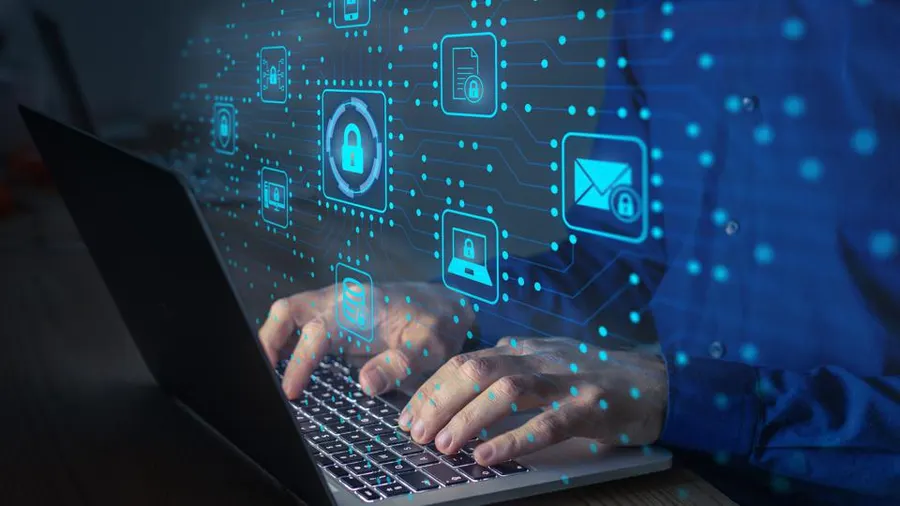Introduction
The Olympic Games are a symbol of international unity and athletic excellence. However, in the digital age, they also represent a significant target for cyber threats. As the world prepares for the Olympic Games 2024 in Paris, ensuring robust cyber-security measures is paramount. This blog explores the global cyber-security standards in place and how they will be applied to protect the integrity and safety of the Olympic Games 2024.
The Importance of Cyber-Security at the Olympics
The Olympic Games involve massive digital infrastructure, including online ticket sales, live broadcasts, athlete data management, and more. The interconnected nature of these systems makes them vulnerable to cyber-attacks, which can disrupt events, compromise personal information, and tarnish the reputation of the host city and the International Olympic Committee (IOC). Therefore, implementing stringent cyber-security standards is crucial to safeguard the event.

Global Cyber-Security Standards
1. ISO/IEC 27001:
- Overview: ISO/IEC 27001 is an international standard for information security management systems (ISMS). It provides a systematic approach to managing sensitive company information, ensuring its confidentiality, integrity, and availability.
- Application: The standard requires the implementation of security controls and risk management processes, making it essential for securing the digital infrastructure of the Olympics.
2. NIST Cybersecurity Framework:
- Overview: Developed by the National Institute of Standards and Technology (NIST), this framework provides guidelines for managing and reducing cyber risks. It is widely adopted globally for its comprehensive approach to cyber-security.
- Application: The framework’s core functions—Identify, Protect, Detect, Respond, and Recover—will be crucial in building a resilient cyber-security posture for the Olympic Games.
3. GDPR (General Data Protection Regulation):
- Overview: GDPR is a regulation in EU law on data protection and privacy. It aims to give control to individuals over their personal data and simplify the regulatory environment for international businesses.
- Application: As the Olympics will involve handling a vast amount of personal data from athletes, spectators, and officials, complying with GDPR will be essential to ensure data privacy and protection.
4. CIS Controls:
- Overview: The Center for Internet Security (CIS) Controls are a set of best practices for cyber defense. These controls are prioritized and focused on helping organizations improve their cyber-security posture.
- Application: Implementing CIS Controls will help protect against the most prevalent cyber threats targeting the Olympic infrastructure.
Application of Cyber-Security Standards at the Olympic Games 2024
1. Risk Assessment and Management:
- Comprehensive Risk Assessment: Conducting thorough risk assessments to identify potential vulnerabilities in the Olympic infrastructure.
- Continuous Monitoring: Implementing continuous monitoring systems to detect and respond to threats in real-time.
2. Data Protection:
- Encryption: Ensuring that all sensitive data, including athlete information and ticket sales, is encrypted both in transit and at rest.
- Access Controls: Implementing strict access controls to ensure that only authorized personnel have access to critical systems and data.
3. Incident Response:
- Incident Response Plan: Developing and regularly updating an incident response plan to address potential cyber threats swiftly and effectively.
- Training and Drills: Conducting regular training sessions and drills for staff and volunteers to ensure they are prepared to handle cyber incidents.
4. Collaboration with International Experts:
- Global Partnerships: Collaborating with international cyber-security experts and organizations to share knowledge and best practices.
- Information Sharing: Participating in information-sharing initiatives to stay updated on the latest threats and mitigation strategies.
5. Secure Communication:
- Encrypted Communication Channels: Using encrypted communication channels for all official communications to prevent interception by malicious actors.
- Secure Networks: Ensuring that all networks used during the Olympics are secure and regularly monitored for suspicious activity.
Challenges in Implementing Cyber-Security Standards
1. Evolving Threat Landscape:
- Dynamic Threats: Cyber threats are constantly evolving, making it challenging to stay ahead of potential attacks.
- Resource Constraints: Ensuring that sufficient resources, both financial and human, are allocated to maintain robust cyber-security measures.
2. Coordination and Collaboration:
- Multinational Coordination: Coordinating cyber-security efforts across multiple countries and organizations can be complex.
- Consistency in Standards: Ensuring that all parties involved adhere to the same high standards of cyber-security.
3. Public Awareness:
- Educating the Public: Raising awareness about cyber-security threats among athletes, staff, and spectators to ensure they follow best practices.
- Combating Misinformation: Addressing and mitigating the impact of misinformation and disinformation campaigns.
Conclusion
The Olympic Games 2024 in Paris represent a significant opportunity to showcase not only athletic excellence but also the highest standards of cyber-security. By adhering to global cyber-security standards and implementing comprehensive protection measures, the organizers can ensure the safety and integrity of the event. As cyber threats continue to evolve, a proactive and collaborative approach will be essential to safeguard the Olympic Games and set a benchmark for future international events.

